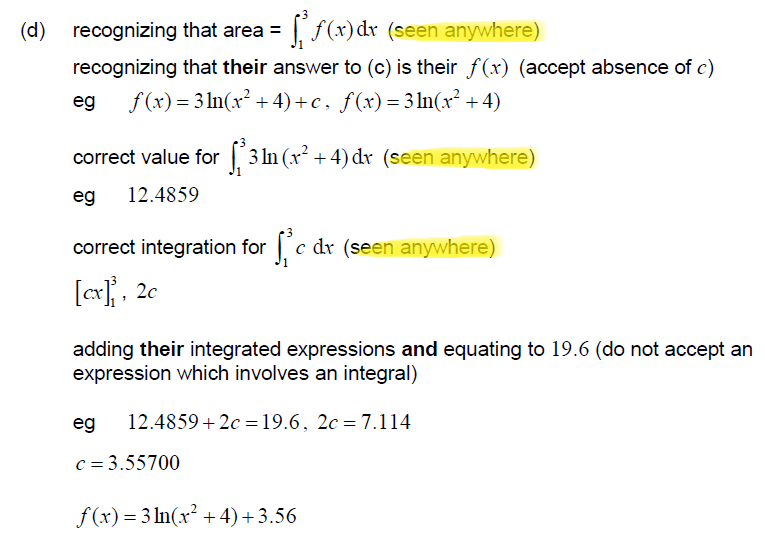
Do you often find yourself running out of time in your Mathematics papers? Do you struggle to complete all the questions and end up leaving some blank or unfinished? If so, you are not alone. Many students face the same problem and wonder why they cant finish their papers on time.
The answer is not that you are bad at Math or that the papers are too hard. The answer lies in how you approach the questions and how you manage your time. After interviewing a variety of teachers and students, we finally figured out why, and how you can improve your speed. Here are 5 solid tips that will change how you approach studying for and answering your questions in your coming papers.
Pre-requisite information
The IB DP mathematics papers have two sections: A (short-answer) and B (long-answer). The questions go from easy to hard in both sections. You can divide them into three categories:
- Easy questions (50%): Use basic techniques and formulas. These questions usually require one or two steps to solve, and they test your knowledge and understanding of the concepts, often occurring as repeat questions from previous years with slight modifications.
- Challenging questions (25%): Use advanced techniques and formulas. Three or four steps to solve that test your application and analysis.
- Ambiguous questions (25%): Not clear or straightforward with multiple ways of solving them that test your synthesis of knowledge and evaluation.
Knowing this information can help you plan your time and strategy better. Now, lets see how you can use it to your advantage.
Tip 1: Use your reading time to understand the questions and make connections with the techniques required to solve them
One of the most important skills that you need to develop for your mathematics papers is the ability to read and understand the questions. This may sound obvious, but many students overlook this skill and rush into solving the questions without fully grasping what they are asking for.
This can lead to wasted time, incorrect answers, and missed marks.
To avoid this, you need to use your reading time wisely. Reading time is the 5 minutes that you get before you start writing your answers. During this time, you should read through all the questions carefully and try to understand what they are asking for, and what techniques you need to use to solve them.
This can give you a mental headstart on a few of the questions and help you assess the difficulty and length of each question. You can also mark the questions that you are confident about, and the ones that you are unsure about, so that you can prioritize them later.
However, this tip goes hand-in-hand with your ability to make connections between questions and the techniques required to solve them, and this is only achievable once youve gained complete concept clarity. As its an integral component to your success in IB Mathematics, we highly recommend checking out our article on how you can ensure concept clarity by changing how you study.
The second youve made the right connections, you gain confidence and know exactly which questions to solve first to secure the most marks.
Tip 2: Attempt questions from most familiar to least familiar
As we mentioned before, the questions in the mathematics papers are arranged in ascending order of its objective complexity, from easy to hard. However, difficulty is relative. We recommend that you attempt the questions from most familiar to least familiar, and they’re usually the questions that you’re intuitively able to identify the steps required for you to solve it (as explained in tip 1).
Why should you attempt these questions first? Because they are the ones that will give you the most marks for the least effort. These are the questions that make up 50% of the paper, and they are the ones that you can secure easily. If you know your concepts and techniques well, you won’t waste much time on these questions at all.
But what would happen if you chose to solve a question that you aren’t completely confident in first?
Often, struggling with the first few questions can induce a mental block where your mind might convince you that the test is harder than it actually is. This can affect your confidence and performance for the rest of the paper, and make you lose valuable time and marks on simpler questions.
By attempting the questions from most familiar to least familiar, you can avoid this trap and build up your confidence and momentum as you progress through the paper. You can also save your time and energy for the more challenging and ambiguous questions that come later, and that require more thinking and creativity.
Tip 3: Do not over commit
One of the biggest mistakes that students make in their mathematics papers is over committing to a question that they are not sure how to solve. They may spend too much time trying to figure out the solution, or trying different methods that do not work, or getting stuck in a loop of calculations that lead nowhere.
This can result in wasted time, frustration, and loss of marks.
To avoid this, you need to be smart and flexible about how you approach each question. You need to try thinking about how to solve a question, and if it clicks, proceed with it. If it does not, skip it for now and come back later. You might have a fresh mind and might be able to think from a different angle.
However, if it is a long-answer question (granted you have enough time), the rule of thumb is to make sure to give it a shot for half the minutes as the number of marks the question is worth. If you feel like you’re getting somewhere, continue working on your answer- And if you dont, make sure to write your approach and begin working it out the best you can, before moving on as you may get some marks for it.
Here is a screenshot example from the marking scheme that shows why its important to write whatever you understand from long answer questions, even if you arent completely correct.

Tip 4: Stop overthinking it
The fourth tip is to stop overthinking it. This means that you should not doubt yourself or second-guess your answers too much. Especially for HL students, you donT need to keep checking your formula booklet for the formulas, and you don’t need to check your calculator for the most basic calculations. It doesn’t mean you will always be correct, but the time you save not overthinking it, will likely allow you to gain more marks.
For SL students however, the reassurance which the calculator/data booklet provides is invaluable in boosting their confidence which will help them plow through the paper.
Of course, this does not mean that you should be careless or reckless. You should still check your answers for obvious errors or mistakes, such as wrong signs, units, or rounding. But you should not waste time on trivial or unnecessary details, such as verifying every step or calculation.
Tip 5: Revision time
On that note however, you must prioritize leaving at least 5 minutes at the end of your paper, to go back and check through your paper for possible mistakes or inconsistencies. If you do identify mistakes, do not panic, try to rectify them and if you can’t put your thumb over it look for other possible mistakes which can be easily resolved.
This can help you catch and correct any errors that you may have made, such as calculation errors, sign errors, unit errors, rounding errors, or logical errors. It can also help you improve your presentation and communication, such as writing your answers clearly, using the correct notation and symbols, showing your working and reasoning, and labeling your diagrams and graphs.
Revision time is crucial for your mathematics papers, as it can make the difference between a good and a great grade. It can also help you avoid losing marks for silly mistakes that you could have easily avoided.
Conclusion
In conclusion, finishing your mathematics papers on time is not an impossible task, but it requires some skills and strategies that you need to learn and practice. In this article, we have shared with you 5 solid tips that can help you improve your speed and accuracy in your mathematics papers. These tips are:
- Use your reading time to understand the questions and make connections with the techniques required to solve them
- Attempt questions from most familiar to least familiar
- Do not over commit
- Stop overthinking it
- Revision time
By following these tips, you can change how you approach studying for and answering your questions in your coming papers.
Thank you for reading and good luck with your papers! 😊